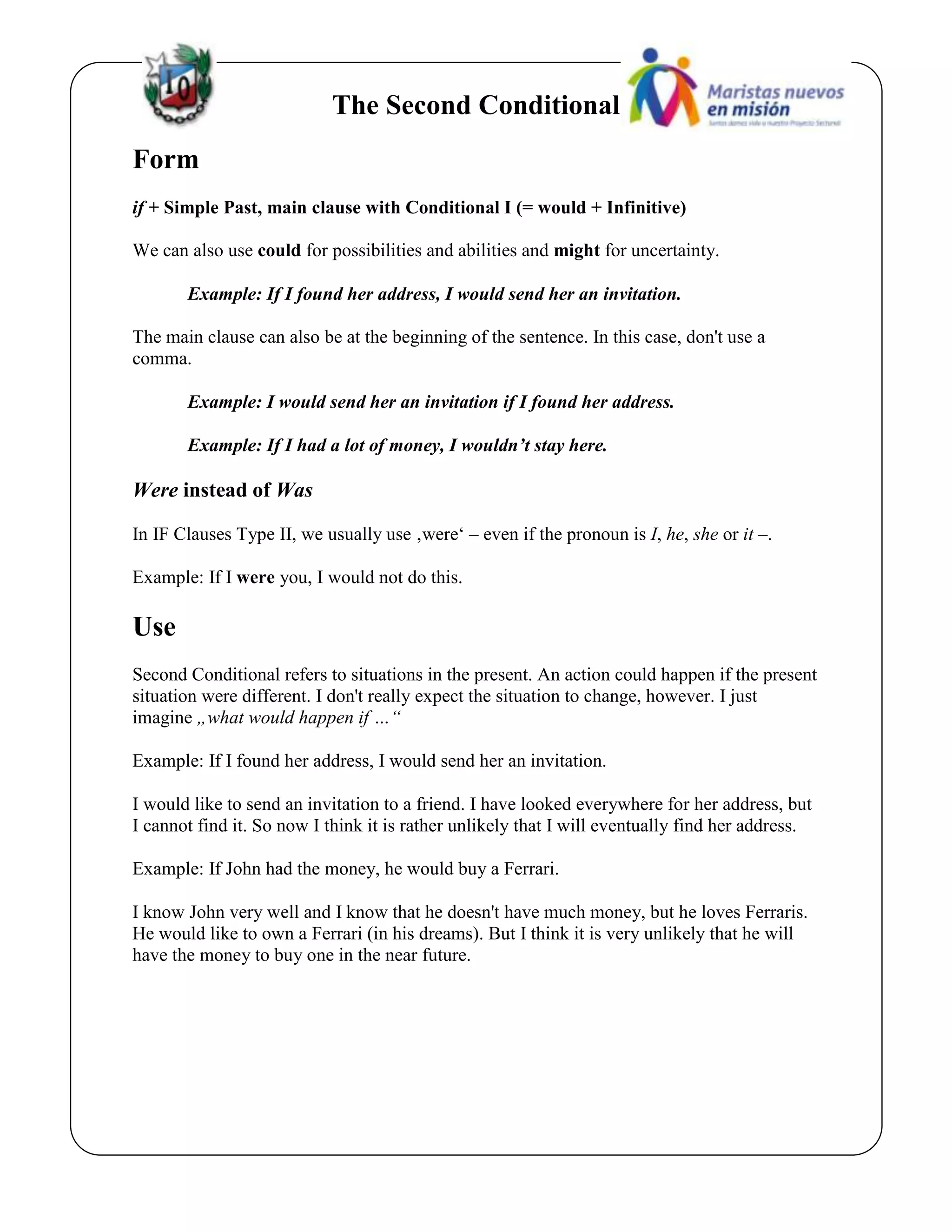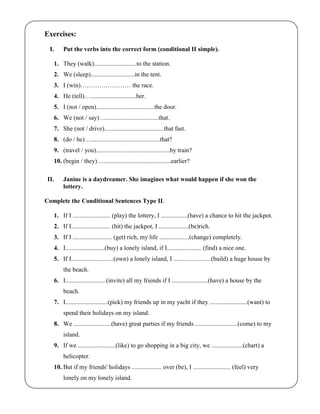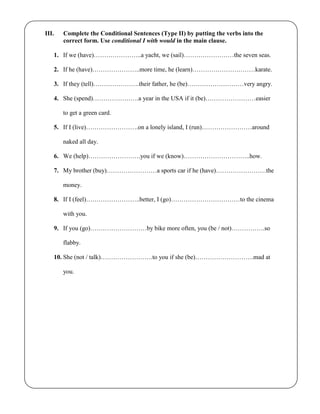The document discusses the Second Conditional, which refers to hypothetical or unlikely situations in the present. It provides the form and examples of the Second Conditional, which uses "if" with the past tense in the "if" clause and "would" in the main clause. It then provides exercises for learners to practice forming Second Conditional sentences.


